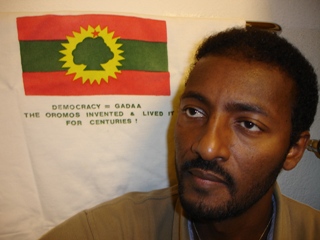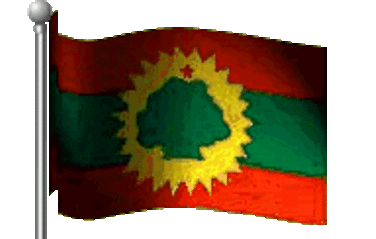Ethiopia urged to leave Somalia
The African Union has called on Ethiopia to withdraw thousands of troops from Somalia immediately.
The call, supported by the Arab League and the east African grouping IGAD, comes after Ethiopia intervened to support Somalia's interim government.
In recent days, Ethiopian and Somali government forces have captured ground previously held by Islamic militias.
They are reported to be 30km (19 miles) north of the capital Mogadishu, after seizing the towns of Jowhar and Balad.
The Somali Prime Minister, Ali Mohammed Gedi told the BBC the people of Mogadishu would welcome his troops with flowers when they arrived in Mogadishu, and said the Ethiopian troops would be sent home as soon as the government controlled the whole country.
But after a meeting at AU headquarters in the Ethiopian capital, Addis Ababa, the AU Commission chairman Alpha Oumar Konare said the AU, Arab League and IGAD wanted to see Ethiopian troops withdraw without delay.
"We appeal for urgent support for the transitional government and the withdrawal of all troops and foreign elements," he said.
The African Union is powerless when it comes to forcing the issue but it is unprecedented for the organisation to be so critical of its host nation Ethiopia, reports the BBC's Amber Henshaw in Addis Ababa.
On Tuesday, the AU said Ethiopia had the right to intervene militarily in Somalia as it felt threatened by the Islamic militia operating there.
The Somali ambassador to Ethiopia, Abdikarin Farah, said it was up to the Somali and Ethiopian governments to decide when the troops would leave.
He suggested Somali soldiers, who are currently supported by Ethiopian armour and thousands of Ethiopian troops, would continue their advance towards Mogadishu.
"We are not going to fight for Mogadishu, to avoid civilian casualties. Our troops will surround Mogadishu until they (the Islamists) surrender," the ambassador said, quoted by Reuters news agency.
At the weekend Ethiopia began a major offensive against militia loyal to the Union of Islamic Courts (UIC), which held much of central and southern Somalia.
Jowhar, 90km (56 miles) north of Mogadishu, is a former UIC stronghold, and its loss leaves the Islamists with control of little more than the coast, including Mogadishu and the southern port city of Kismayo.
The UIC's two most senior military commanders - the defence chief, Yusuf Indade, and his deputy, Abu Mansur - are currently both on the Hajj pilgrimage in Mecca.
Humanitarian concerns
Both sides say they have inflicted hundreds of casualties. The Red Cross has reported more than 850 injured people at hospitals it supports.
The UN's World Food Programme has suspended air drops into southern Somalia because of the fighting, but the Red Cross says it has been able to continue its cargo flights to its partners in Somalia.
Agencies are having difficulty reaching people affected by months of drought, which has now been followed by flooding
UN High Commissioner for Refugees says it is concerned that many people may be fleeing the fighting, and is preparing to receive them in camps along the Kenyan border.
The UN Security Council, which has been debating the Somalia conflict, is due to resume discussions in New York.
Splits have emerged on the council, with Qatar insisting that any statement should call for the immediate withdrawal of all foreign forces, including Ethiopia's, from Somalia.
Other council members say that this should not apply to Ethiopian troops, arguing that they are in Somalia at the request of the interim government.
The UIC - which seized control of the capital six months ago - has introduced law and order to the capital and much of southern Somalia for the first time in 16 years.
For more details see BBC world news.



0 Comments:
Post a Comment
<< Home